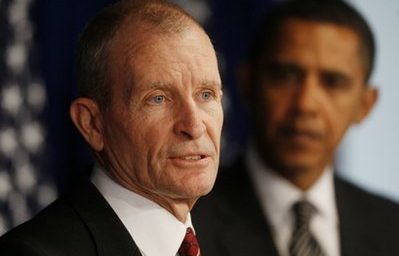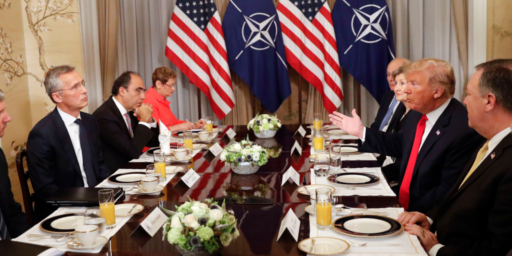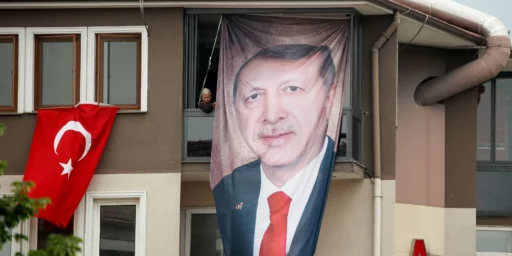WHAT HISTORY WILL SAY
Anatole Kaletsky has a superb piece in Times Online in which he contends that “the world will never be the same again after the Iraq war” and that Tony Blair is fully cognizant of that:
Some changes are obvious enough. It is clear, for example, that America’s relations with France and Germany will never be the same. As Mr Blair stated grimly on Tuesday: “There is at the end of this going to be a reckoning about relations between America and Europe.â€
It was equally clear from Mr Blair’s comments that Britain’s relations with Europe will permanently change. When a tireless Euro-booster such as Mr Blair uses the emotional word “reckoning†about relations with Europe, it is likely that he has arrived at a personal moment of truth. This becomes undeniable when he looks directly at the camera and portentously adds, not once but twice, that what he is about to say is “probably undiplomatic, but I will say it nonethelessâ€.
The nature of that reckoning?
Nato and the UN have both been permanently weakened. While the UN will doubtless continue to operate as a humanitarian organisation and a global debating society, Nato will probably cease to exist in its present form. Since Nato’s original purpose — to protect Western Europe from communism — has been fulfilled, it is hard to see any benefit for America or Britain in continuing a military alliance with France, Germany and Belgium.
The countries which will most obviously lose out are Germany, which will suffer from the withdrawal of US troops, and of course France. France will find its crucial aerospace, defence and electronics industries consigned to permanent technological obsolescence since they will be frozen out of joint ventures and partnerships in which the Pentagon plays any role. Belgium will suffer from the closure or relocation of Nato’s Brussels HQ. Beyond Old Europe, some other clear losers are easy enough to discern. Russia and Turkey have both played strong hands extremely badly. And while Turkey may well be “forgiven†because its co-operation is essential for stability in the Middle East, Russia is likely to suffer significantly, though not as disastrously as France and Germany, from ending up on the wrong side.
Not only will Russia lose a substantial part of its financial stake in Iraq. More importantly, it has damaged its hopes of rapid integration into the world economy by establishing normal trade relations with the US and gaining early membership of the World Trade Organisation. * * *
Henry Kissinger, a German Jew who escapted to the United States as a teenager and who was part of the post-war occupation as a young American Army officer, very sadly echoed many of these thoughts on Fox television last night. I have been more optimistic about the future of US-European relations for reasons explained in Huntington’s Clash of Civilizations and Friedman’s The Lexus and the Olive Tree. But the continued sabotage of our war efforts by France in particular, to include arms sales to our enemy that continued even after the shooting started, makes that optimism difficult to sustain.





